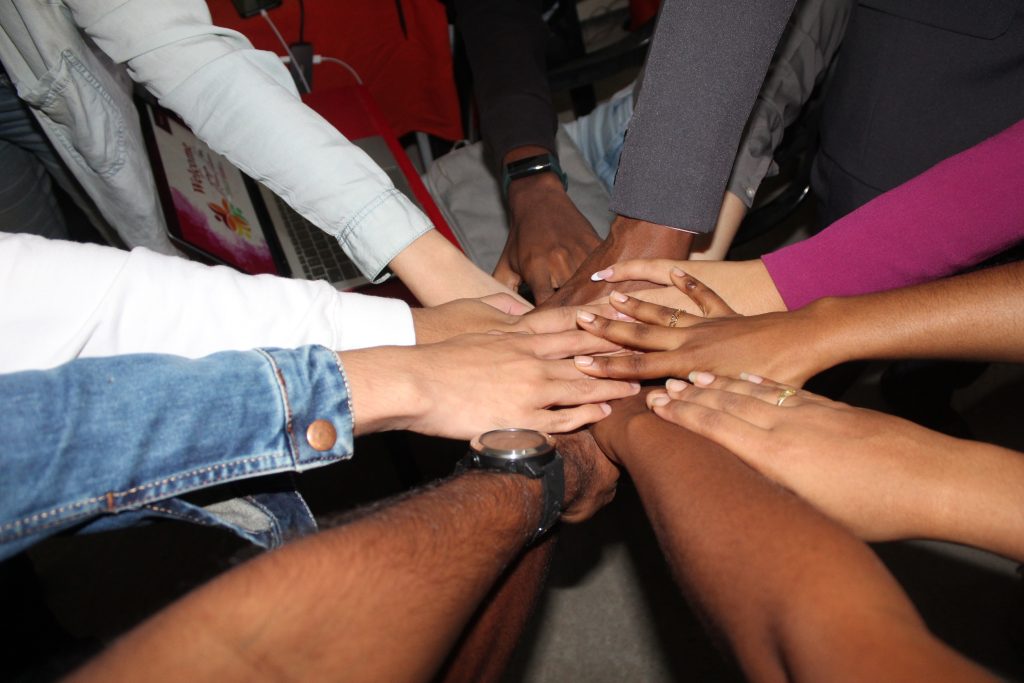Information
Transplantation Roles
16 May 2022
As part of our Heroes of Transplantation campaign, we’re taking a look at all the different roles involved in the organ transplantation journey. We’ll be adding new role descriptions here all the time, so check back often.
As part of our Heroes of Transplantation campaign, we’re taking a look at all the different roles involved in the organ transplantation journey. We’ll be adding new role descriptions here all the time, so check back often. Feel free to suggest a role by emailing info@livelifegivelife.org.uk
Hospital receptionist
A hospital receptionist is often the first point of contact that patients and visitors have when they go to a hospital. Patients and their relatives can be nervous or upset when they visit and receptionists often reassure them that they are in the right place at the right time, promoting positivity and helping them to calm down at the right time.
Transplant surgeon
Transplant surgeons work in large multidisciplinary teams to provide organ replacement surgery. Such surgery may be either lifesaving, as in the case of liver transplantation, or life prolonging, as with kidney transplantation. Transplant surgeons also usually provide dialysis access surgery and general elective surgery along with either a multiorgan retrieval service or acute general surgical service on call. They work closely with their medical colleagues, such as hepatologists, nephrologists, and diabetologists, where pancreas transplantation is available, as well as immunologists and scientists.
Specialist transplant nurse
Specialist Nurses-Organ Donation (SNOD’s) support potential donor families and the operational processes of organ donation. The specialist nurse receives detailed training in communication and family support, especially in the end-of-life wishes conversations. This training enables the specialist nurse to explore the individual’s decision or the families wishes, providing specific donation information tailored to the individual case. Involving the specialist nurse from the initial end-of-life care discussions enables a relationship between the family and specialist nurse to develop and for the specialist nurse to better support the family through the end-of-life care process.
Specialist pain nurse
Pain management nurses care for patients in a variety of inpatient and outpatient environments. The goal of pain management nurses is to relieve pain and enhance patients’ quality of life so that they may engage in their activities of daily living to the maximum of their ability without being hampered by pain and related issues. Pain management nurses receive specialized education addressing identification of pain, uses of medications, physiological and psychological effects of pain and non pharmaceutical interventions which relieve pain. They work with patients, families, and other health care providers.
Transplant coordinator
Recipient transplant co-ordinators are responsible for arranging the tests needed to assess patients’ suitability to go on the transplant waiting list. They coordinate the transplant waiting list and sometimes arrange follow-up consultations after transplantation. They support and guide the recipient through their transplant pathway. Transplant co-ordination begins when a patient is referred to a transplant unit for consideration of an organ transplant and follows the recipient through the whole process and sometimes into long term post-transplant follow up care.
Transplant social worker
Provide advice, information and support with both practical and financial issues. Emotional and psychological support is also offered to patients and their families following a transplant.
Social workers are involved with transplant patients and living donors throughout the transplant and donation process including pre-evaluation, psychosocial informed consent, transplant and living donor selection, hospital discharge planning, short term and long term follow ups. They also provide counselling and crisis intervention, patient and family education, information and referral to hospital and community resources and services, facilitate patient and caregiver support groups and mentor programs.
Domestic cleaner
Domestic services staff are the lifeblood of hospitals, keeping them clean and hygienic.
Domestics services staff work across all areas, making sure that they are clean and safe places where staff can care for patients while reducing the risk of infection. All hospital patients need a clean environment to recuperate in and transplant patients are especially vulnerable to infection. This makes the cleaning team absolutely vital, often performing extra and more intensive cleaning whenever it is needed – not forgetting sometimes overnight when patients are brought in for transplant after hours.
GP
General practitioners will often be the first to notice a patient’s illness or condition that results in their need for a transplant. The offer a familiar face and even post-transplant are sometimes responsible for providing blood tests for those who live a long way from their transplant centre.
Medical transplant doctor
These doctors are often the organ specific specialists who may take care of someone during their illness for example their respiratory or liver diseases to the point of their transplant. They are then sometimes involved in the aftercare, managing medication doses, later complications and transplant health.
Retrieval team
This is a multi-disciplinary team made of theatre staff at both donor and recipient hospitals. There are multiple teams across the country who will travel to retrieve donated organs. This includes, surgeons, nurses and perfusionists.
Dialysis nurses
Dialysis – both haemodialysis and peritoneal dialysis – are life prolonging treatments required for those with kidney failure until they are able to receive a transplant, or sometime as a final treatment. These nurses deliver the treatment being a regular point of contact for their patients who they get to know very well. Some dialysis nurses also take on roles educating their patients to do their own dialysis at home or in a dialysis unit.
Ward nurses
These nurses take care of patients’ post-transplant, some immediately and some after they have had a stay in intensive care. This involves their personal care, medication, dealing with dressings and drains. The ward nurses also educate the patient to get them independent with their medications and to teach them about living with a transplant.
Healthcare assistants
Healthcare assistants have a role throughout the transplant journey. They work on many wards and intensive care where people are looked after pre and post transplant. In this instance they may offer personal care, help with mobility and a key role ensuring patients receive appropriate nutrition. HCAs also work in outpatient clinics taking vital signs and bloods.
Palliative care
It is a sad fact of life that many patients do not receive a transplant in time, and also post-transplant not everyone will survive long term. This is just one instance where palliative care doctors, nurses and HCAs may get involved. For these patients at end of life they can help with symptom control, creating memories and helping to involve the whole family. Aside from end of life, many transplant patients can have complicated symptoms of pain and nausea and palliative care can be the experts in controlling this with both medication and other methods.
Physiotherapy
The physiotherapy team works with patients to build strength so that they can sit out of
bed and begin walking. Patients may have had a long period of illness and it may take some time to
improve their level of fitness. The physiotherapy team will work with patients daily to improve their
strength, stamina and co-ordination through exercise. They will support patients in their transition
from hospital to home and into the future.

